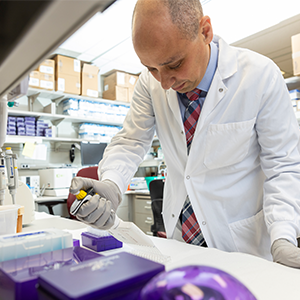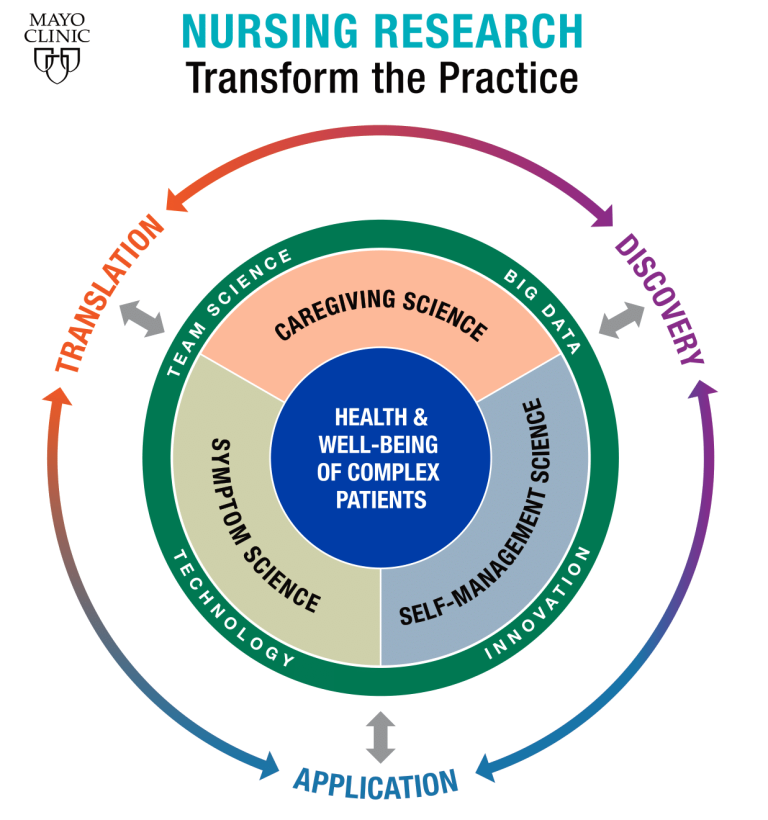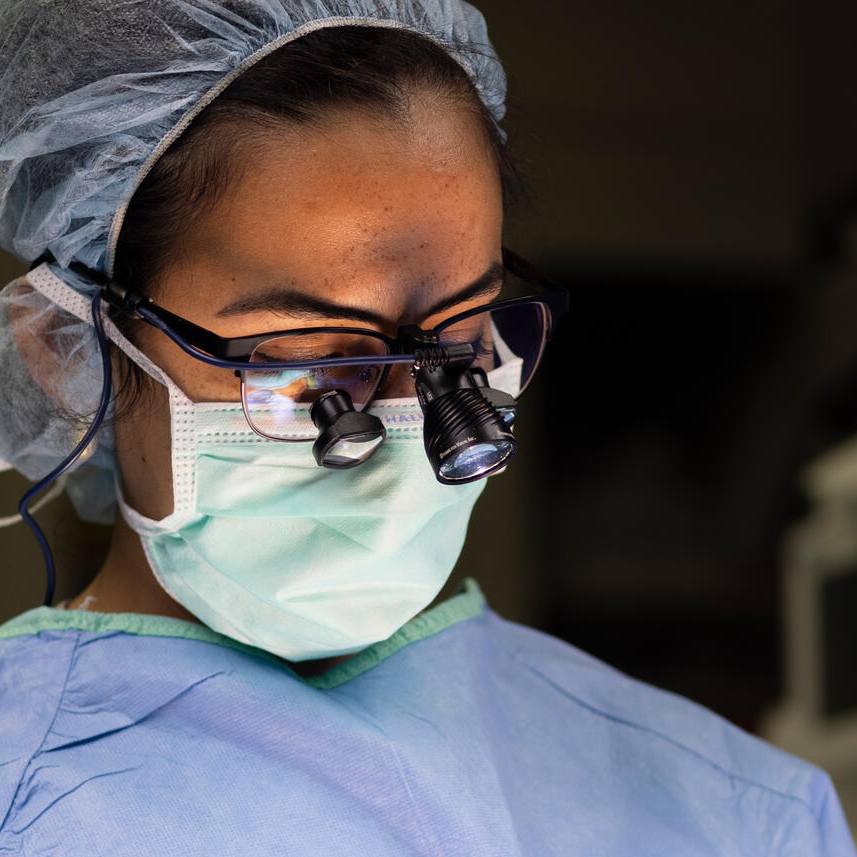-
Discovery’s Edge: A biobank helps find answers for bipolar disorder
To the uninitiated, cardiovascular disease, body mass index and eating disorders may seem unrelated to bipolar disorder, formerly known as manic depression.
Yet, researchers with Mayo Clinic’s Individualized Medicine Biobank for Bipolar Disorder are examining all of these conditions for possible links.
The biobank began recruiting patients in 2009, with two missions. The first, to discover genes that contribute to or increase risk of developing bipolar disorder, as well as genes that influence illness progression often associated with other medical diseases (i.e. comorbidity). And secondly, to discover genes that guide or individualize response to treatment. So far, about 2,000 people have contributed medical information and blood samples to the biobank.
Mark A. Frye, M.D., is the co-principal investigator at the bipolar disorder biobank and the chair of the department of psychiatry and psychology at Mayo Clinic in Minnesota.
“The scientific discoveries that are made should be ultimately used as additional tools for clinicians who are working with patients, to provide an accurate diagnosis and guide treatment, says Dr. Frye.”
A tie to obesity?
Joanna M. Biernacka, Ph.D., the biobank’s other co-principal investigator and lead statistical geneticist, highlight promising lines of inquiry for ongoing investigation. Several studies by Dr. Biernacka and Dr. Frye with key collaborators and former Mayo Clinic post-doctoral research psychiatrists who have returned to their home universities in in Mexico and Chile have identified genetic variation that appears to influence risk of bipolar disorder, but only in certain cases.
“Some genetic variation may be associated with bipolar disorder, but the way in which they impact the disease presentation appears to be regulated by factors related to BMI, a person’s body mass index,” says Dr. Biernacka, “And because of that, we’ve been able to find genetic variations that are associated with a subtype of bipolar disorder with comorbid obesity.”

The team has been closely studying a variation of the gene known as TCF7L2, which they demonstrated to have a potential influence on bipolar disorder. Their findings, both the initial finding published in Molecular Psychiatry 2014 and the replication published in Bipolar Disorder 2016, point to a specific variation of the TCF7L2 gene as the one that may help mediate the onset of bipolar disorder. The gene’s effects, however, seem to increase along with a person’s body mass index, possibly reflecting a role of other related factors such as binge eating, which is more common in patients with bipolar disorder.
That’s in synch with other research indicating a higher prevalence of obesity and binge eating disorder among people with bipolar disorder. Those findings were reported in a study by Drs. Frye and Biernacka and their co-authors including Dr. Susan McElroy from the Lindner Center of Hope in Mason, Ohio and University of Cincinnati (Journal of Affective Disorders, 2016). They also point to past studies that suggest bipolar disorder patients with higher BMI tend to have a tougher road, marked by additional illnesses, more frequent mood changes and a greater tendency to be suicidal.
“We know that these complex diseases such as bipolar disorder are not caused by single genetic variations,” she says. “There is no genetic variation that will give a person bipolar disorder or alcoholism or any of these complex traits. Instead, it’s the combination of a person’s variations at numerous genes that together contributed to their illness.”
Not surprisingly, then, the possible connection between BMI and bipolar disorder — as well as how such a connection might work — is still a bit of a mystery.
“Was it an elevated BMI from the very beginning? Was that a BMI that increased over time? We want to better understand what is that genetic risk and interaction with obesity,” Dr. Frye says, emphasizing the need for further research. It's all very challenging due to the emerging complexity of this disease.
Divide and conquer
The concept of subtypes or “narrowly defined phenotypes,” each with its own specific set of disease characteristics, shows up over and over again in the biobank research. Dr. Frye calls bipolar disorder “a profoundly heterogeneous disease.”
Some patients, he notes, may suffer a single manic episode early in life and yearly seasonal depression, while others experience frequent swings between mania and depression.
“If we’re going to benefit from the technological advances of genomic medicine, the phenotype or the clinical description needs to be much narrower,” he says. “And so we are exploring those narrower definitions or clinical phenotypes in the biobank and we’re hitting some very important preliminary results.”
These phenotypes extend beyond the classification of bipolar disorder as type I or type II. (Type II is similar to type I but individuals have not had a manic episode.) In addition to obesity, the research team is looking at conditions that are often diagnosed along with bipolar disorder such as cardiovascular disease, addiction and eating disorders. Searching for genetic biomarkers to these disorders may help explain their presence or absence in people with bipolar disorder.
Finding biomarkers that correlate with each of these phenotypes may be the aim of future research studies. And ultimately, identifying subtypes of bipolar disorder and the genetic variations behind them could allow clinicians to further individualize treatment for bipolar disorder. For example, for someone with a suspected or confirmed connection between high BMI and bipolar disorder, a physician might recommend medications that are less of a risk for weight gain or emphasize the importance of exercise and a healthful diet, Dr. Frye says.
Drug-response roulette
The research team currently is enrolling patients for a study involving two medications commonly prescribed for the depressive phase of bipolar disorder: fluoxetine — popularly known as Prozac — and lamotrigine.
“Both of these drugs are used frequently,” Dr. Frye elaborates, “and we want to better explore if the effectiveness of the drug can be more precise when a certain gene configuration or protein configuration is present.”
Other bipolar biobank studies have searched for a genetic tie to a serious, drug-related complication called antidepressant-induced mania (AIM). As the name indicates, patients who suffer from AIM shift into a manic state after taking antidepressant medication. Some patients experience this after taking any antidepressant, while others do not.
Dr. Frye sees AIM as serious drug adverse event for a patient who struggles with bipolar depression. Unfortunately, he never knows for sure which of his patients will develop it, or why.
Lacking a clear understanding of the “who” and “why” of AIM, prescribing antidepressants to treat bipolar disorder has risk. Mayo Clinic’s bipolar biobank team believes genes may hold the key to this baffling riddle.
The group’s latest study on the topic, published in the Journal of Clinical Psychiatry, points to a greater risk of AIM for patients with bipolar disorder type I than type II, and suggests that a specific group of genetic variants (called a haplotype) may be linked to a lower risk of the complication.
Taking a different approach
Despite their work looking at the genetic foundations of bipolar disorder, the team isn’t ruling out other biological markers such as mitochondrial function and its interaction with our nuclear DNA and the role environmental influences likely play. Ultimately, navigating the labyrinth of factors that cause and shape bipolar disorder will be a societal or consortium effort, rather than one of a single institution, Dr. Biernacka notes.
But she and Dr. Frye believe their approach of looking at a wide variety of phenotypes and searching for associated biomarkers is invaluable.
“That’s what’s more unique about our work,” she says, “a rich description of the clinical presentation linked to modern technological methods of genomic medicine ”
- Laura Mize
August 25, 2016







